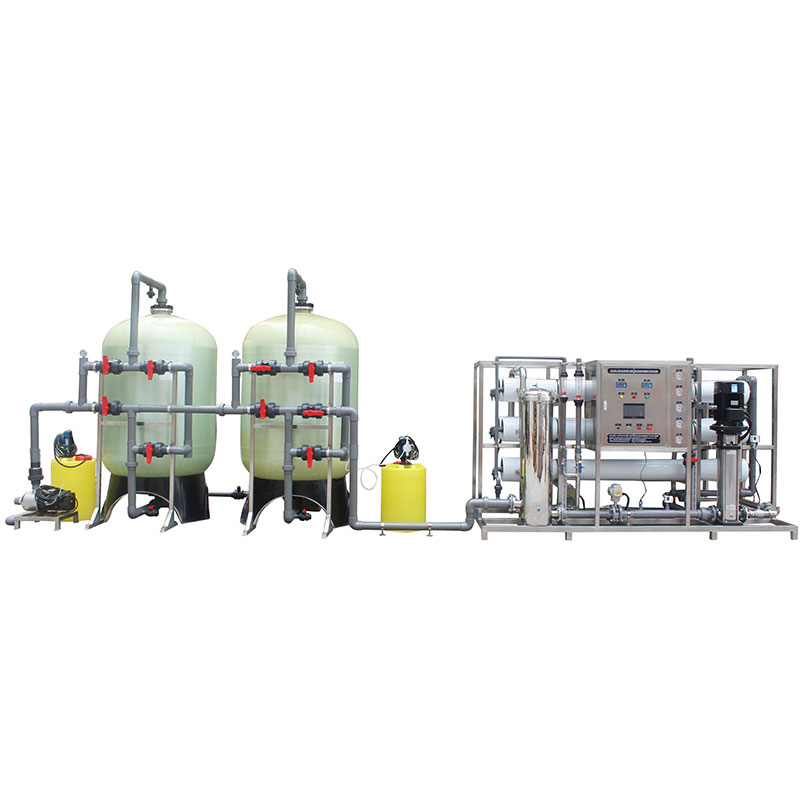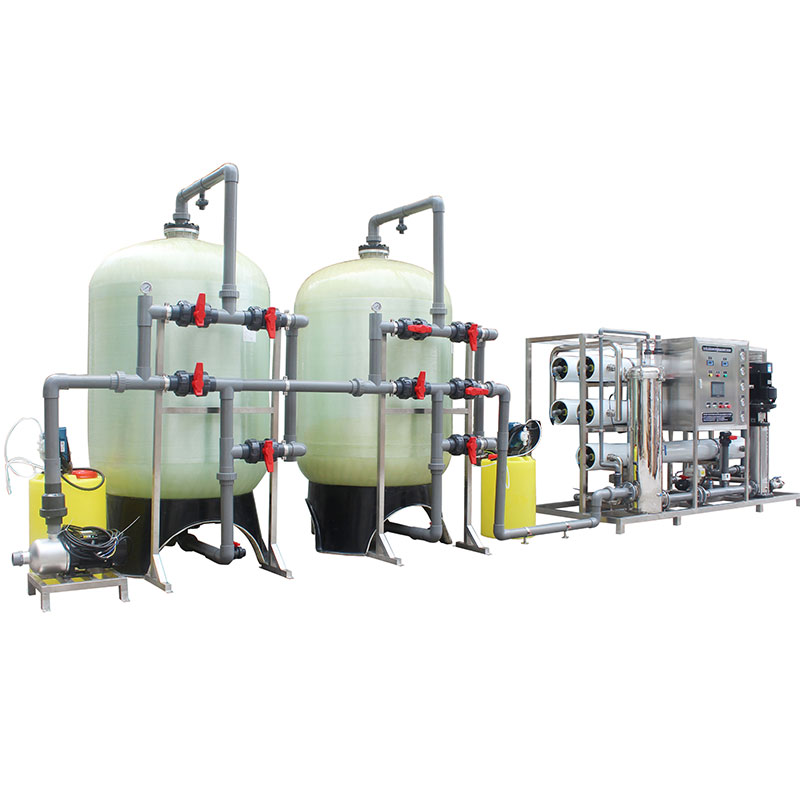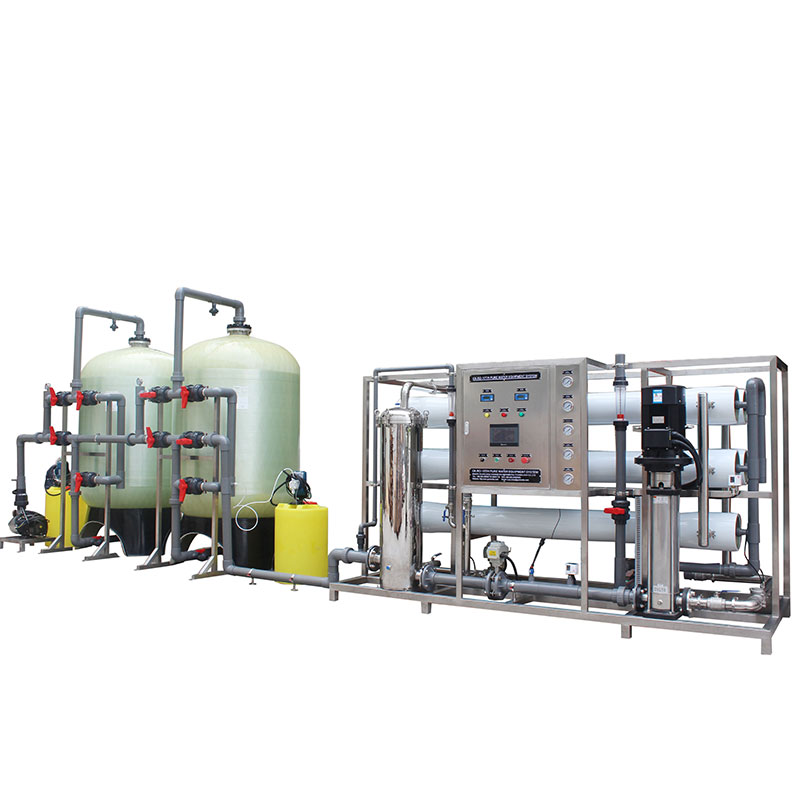What is a commercial water treatment system?
Commercial water treatment systems are a critical piece of manufacturing equipment and they are used in a wide variety of industries and fields to solve specific problems related to water quality. This article will delve into what commercial water treatment systems are, how they work, and their importance and role in practical applications.

What is a commercial water treatment system?
Commercial water treatment systems refer to equipment and processes used to treat water quality in commercial and industrial locations. Commercial water treatment systems typically consist of a variety of components, including filters, softeners, reverse osmosis systems, and more, that work together to remove impurities, ions, and other contaminants from the water. These systems play an important role in different industries, ensuring the safety and reliability of water quality.
In commercial settings, water quality is critical to manufacturing processes. Different industries have different water quality requirements, so commercial water treatment systems need to be customized to meet the needs of the specific industry. These systems can effectively remove harmful substances from water, ensure the smooth progress of the production process, and improve product quality.
One of the core components of a commercial water treatment system is a reverse osmosis system. Reverse osmosis technology filters dissolved solids, ions and macromolecular organic matter in water through a semi-permeable membrane to obtain high-purity water. This technology is widely used in commercial water treatment, such as in pharmaceutical, electronics, food and beverage industries, which require high-purity water to ensure product quality.
In addition to reverse osmosis technology, commercial water treatment systems can also use other treatment processes, such as activated carbon filtration, ultraviolet disinfection, etc. These processes can be selected and combined according to the characteristics of the water source and the required water quality to achieve the best treatment results.

How do commercial water treatment systems work?
Commercial water treatment systems operate across a variety of processes and technologies, the most common of which is reverse osmosis. The reverse osmosis system uses the characteristics of a semi-permeable membrane to drive water molecules through the solution through high pressure, while leaving dissolved solids, ions and other pollutants on one side of the membrane.
Reverse osmosis membranes are one of the key components in commercial water treatment systems. This membrane has a microporous structure that can effectively prevent the passage of most dissolved solids, ions and organic matter, thereby purifying water. In a reverse osmosis system, water is pushed through a membrane and contaminants are trapped on one side of the membrane, creating a concentrate.
In addition to reverse osmosis membranes, commercial water treatment systems include pre- and post-treatment processes. The pre-treatment process includes filtration, softening, etc., to remove impurities such as suspended particles and hard water ions in the water; the post-treatment process includes disinfection, ozone oxidation, etc., to ensure the safety and stability of the water.
The operation of a commercial water treatment system needs to take into account a variety of factors, such as water quality, water quantity, operating costs, etc. Only by comprehensively considering these factors and adopting appropriate technologies and processes can we ensure that the system operates stably and achieves remarkable results.
What are the application areas for commercial water treatment systems?
Commercial water treatment systems are commonly used in the catering and hospitality industries. In these industries, water quality is crucial for food processing and dietary safety, and commercial water treatment systems can effectively remove harmful substances and bacteria in the water, ensuring food safety and hygiene.
Commercial water treatment systems are also widely used in pharmaceutical, chemical, electronic and other industrial fields. In these industries, water quality has a direct impact on the production process and product quality, and commercial water treatment systems can provide stable and reliable high-purity water sources, ensuring the smooth progress of the production process and high-quality production of products.
Commercial water treatment systems are also widely used in urban water supply, industrial circulating water, agricultural irrigation and other fields, making important contributions to social and economic development and environmental protection.

What are the features and advantages of commercial water treatment systems?
Commercial water treatment systems have many features and benefits that make them one of the first choices for solving water quality problems.
First, commercial water treatment systems can efficiently remove various contaminants and impurities from water, thereby providing high-quality water quality. Through the combination of multiple processes and the application of reverse osmosis membrane technology, commercial water treatment systems can effectively remove microorganisms, organic matter, heavy metals and other pollutants in the water and produce pure product water.
Secondly, commercial water treatment systems are characterized by high flexibility and wide applicability. The design and configuration of commercial water treatment systems can be adjusted to different industries and water quality requirements to meet the needs of different users. At the same time, commercial water treatment systems can be applied to places of different sizes. From small restaurants to large industrial plants, commercial water treatment systems can be used to solve water quality problems.






